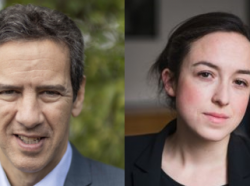Joanne Clement and Hannah acted for the Secretary of State for Education in this landmark case about the use of the inherent jurisdiction to deprive children of their liberty.
The appeal raised important questions of law about the use of the inherent jurisdiction to authorise a local authority to deprive a child of his or her liberty in circumstances where the statutory criteria for making a secure accommodation order under section 25 of the Children Act 1989 are met, but where the child is not placed in a secure children’s home (either because there is a shortage of placements in secure children’s homes or the child’s needs could not be met in such a placement).
T was a 15 year old child in the care of a local authority. In view of T’s particular needs, the local authority accommodated T in accommodation which was not a registered children’s home. The local authority applied for an order under the inherent jurisdiction authorising it to deprive T of her liberty there. After that placement broke down, the court authorised the local authority to deprive T of liberty in a registered children’s home in England which was not approved for use as secure accommodation. T’s case in the courts below was that she consented to the restrictions in place so there was no need for a court order authorising her deprivation of liberty. The judge took the view that there was a need for an order, because her consent was not of an enduring quality.
Before the Supreme Court, T argued that the inherent jurisdiction was not available at all as a vehicle to authorise her deprivation of liberty in these placements. T’s appeal raised two main issues. First, she argued that it was not a permissible exercise of the inherent jurisdiction to make an order authorising the local authority to deprive a child of his or her liberty in secure accommodation. She argued that there was a statutory bar on the use of the inherent jurisdiction in section 100(2)(d) of the 1989 Act, and/or that the use of the inherent jurisdiction would cut across the statutory framework in section 25 of the 1989 Act. She also argued that the use of the inherent jurisdiction in this way was contrary to Article 5 of the ECHR. Second, T argued that as she had consented to the arrangements, it was contrary to her best interests to make an order authorising her deprivation of liberty. H
The Supreme Court dismissed T’s appeal.
On the first issue, local authorities in England and Wales have statutory duties to protect and support children, including provisions for placing a child who is being looked after by a local authority and who is at risk of harm in secure accommodation provided for the purposes of restricting liberty (section 25 of the Children Act 1989). Regulations provide that a children’s home can only be used as secure accommodation if it has been approved for that purpose by the Secretary of State in England (and the Welsh Ministers in Wales). The children’s home must be registered with Ofsted in England (and CIW in Wales). Any person who carries on or manages a children’s home without being registered commits an offence. The shortage of placements in secure children’s homes has led to local authorities seeking orders under the inherent jurisdiction to deprive children of liberty.
The Court recognised that the inherent jurisdiction is the great common law safety net which lies behind all statute law. The use of the inherent jurisdiction is subject to limits in section 100 of the Children Act 1989. The statutory bars on its use did not prevent recourse to the inherent jurisdiction in a case such as this where the local authority already had parental responsibility for T as a result of a care order in their favour. The Supreme Court held that it was unthinkable that the High Court, with its long-established role in protecting children, should have no means to keep unfortunate children (and others who may be at risk from them) safe from extreme harm, and in some cases death. If a place in a secure children’s home is not available, the inherent jurisdiction may be used to fill the gap where there is absolutely no alternative and where the child or someone else would come to great harm if the court does not act. In such circumstances, the inherent jurisdiction may be used to authorise a local authority to deprive a child of liberty in an unregistered children’s home, notwithstanding that a criminal offence would be committed by those who operated and managed that children’s home. Any order made under the inherent jurisdiction to authorise a deprivation of liberty in an unregistered children’s home does not authorise the commission of a criminal offence, and nor does it prevent an offence being committed. However, such a placement may be justified or required where the State’s positive obligation under Article 2/3 of the ECHR is engaged. The Supreme Court endorsed the President’s Practice Guidance on Placements in unregistered children’s homes, and noted that there must be strict compliance with the President’s Guidance and the addendum. Lord Stephens concluded that there must be “imperative considerations of necessity” and strict compliance with the President’s Guidance before the inherent jurisdiction could be used in these circumstances.
The Supreme Court also gave useful guidance on identifying when accommodation is “secure accommodation” within section 25 of the Children Act 1989.
The Court concluded that the use of the inherent jurisdiction in this way did not breach Article 5 of the ECHR. The deprivation of liberty was justified under Article 5(1)(d). Once a court order is made, the deprivation of liberty is in accordance with domestic law for Article 5 purposes. Appropriate procedural protections are built into the application process under the inherent jurisdiction, which broadly mirror the protections under section 25 of the Children Act 1989.
The Supreme Court also dismissed T’s appeal on issue 2. The Court noted that a balanced and free decision made by a child to consent to arrangements may be swiftly revised. T’s behaviour after the order had been made confirmed the judge’s view that her consent was not genuinely expressed. There was no factual basis for her argument that her consent to the deprivation of liberty made it wrong for the judge to make the order he did.








